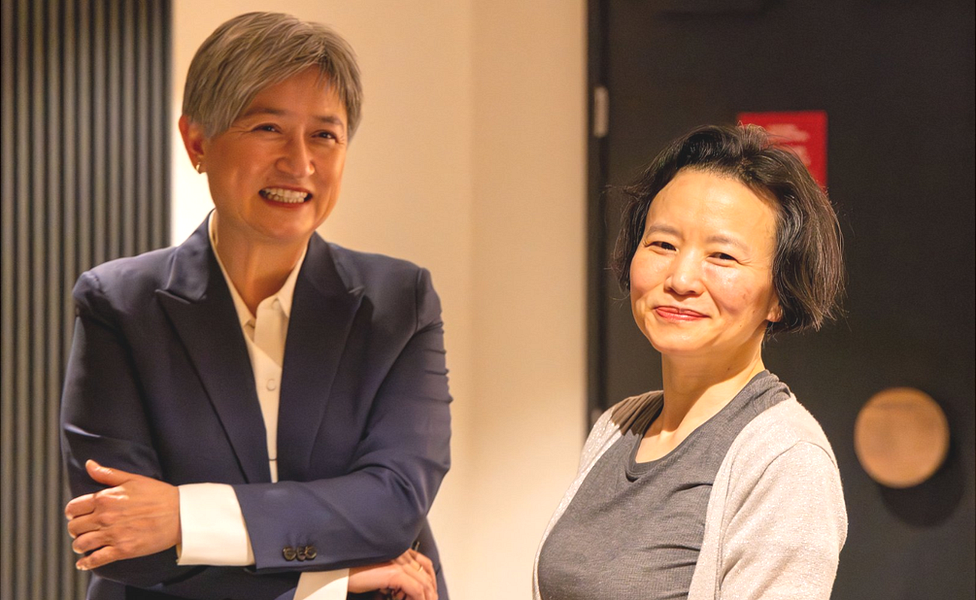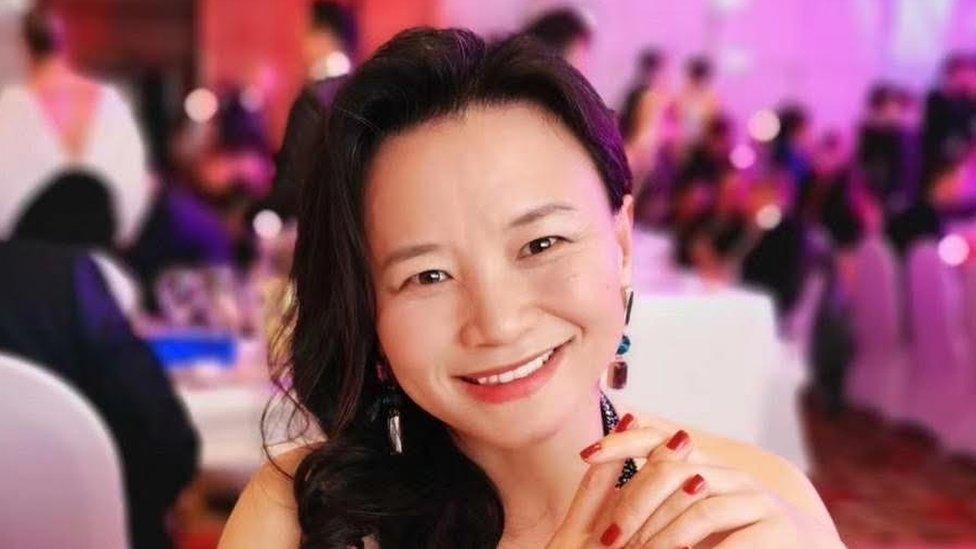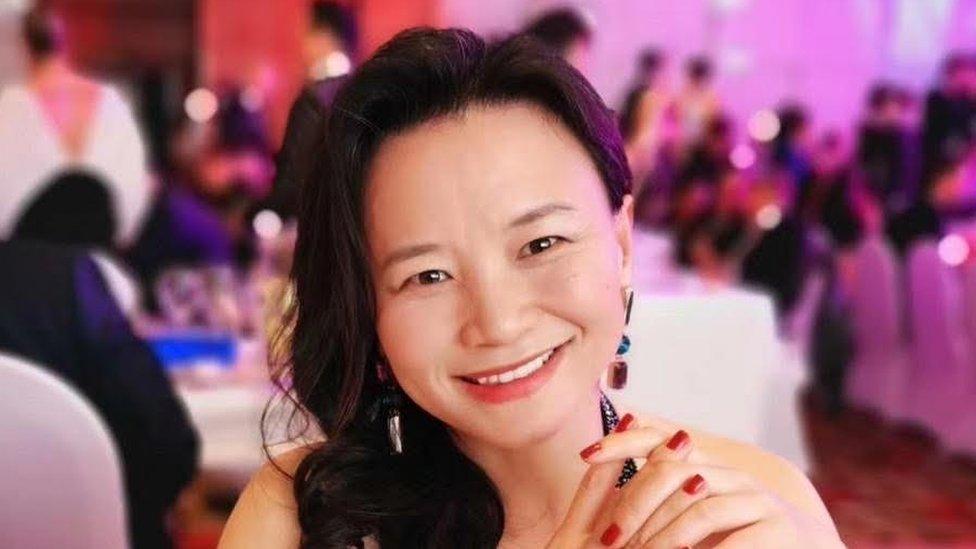Australian Cheng Lei freed from China detention
- Published

Australian Foreign Minister Penny Wong (L) meets Australian journalist Cheng Lei (R) on arrival at Melbourne Airport on 11 October
Journalist Cheng Lei has returned home to Australia after more than three years of detention in China.
"She was met at the airport by the Foreign Minister Penny Wong," Australia's Prime Minister Anthony Albanese said, announcing her release.
Cheng Lei, 48, was working as a business reporter for China's state-run English language TV station CGTN when she was arrested on 13 August 2020.
She was later accused of "illegally supplying state secrets overseas".
Her charges were never made public.
Ms Cheng was swiftly reunited with her family. In a statement shared through her partner, she said there had been hugs and tears "holding my kids in the spring sunshine".
Allow X content?
This article contains content provided by X. We ask for your permission before anything is loaded, as they may be using cookies and other technologies. You may want to read X’s cookie policy, external and privacy policy, external before accepting. To view this content choose ‘accept and continue’.

Ms Cheng was freed as frosty relations between Canberra and Beijing appear to be thawing. Tensions between the two countries deepened during the pandemic, which led to a Chinese ban on Australian exports like barley, coal, and timber. Those blocks were lifted earlier this year, the first signs of a gradual easing of the diplomatic impasse.
On Wednesday, following Ms Cheng's release, Mr Albanese said it would facilitate his trip to China at a "mutually agreed time" this year.
He added that Ms Cheng has been reunited with her two children in Melbourne.
"Her return brings an end to a very difficult few years for her family. The government has been seeking this for a long period of time and her return will be warmly welcomed not just by her family and friends but by all Australians," Mr Albanese said, adding that he spoke to Ms Cheng over the phone earlier on Wednesday.
He noted that her case "was concluded through the legal processes in China".

Cheng Lei was arrested by state security officers in 2020
After her arrest in China, Ms Cheng spent the first six months of her detention in solitary confinement without charge.
Last March, she was tried in secret in a Chinese court. Australia's ambassador to China Graham Fletcher, tried unsuccessfully to gain entry to the court to witness proceedings. Her family also did not know the charges she faced.
China's Ministry of State Security said on Wednesday that Ms Cheng was deported after serving a sentence of two years and 11 months. She had pleaded guilty to her charges, it added. Beijing has not said when she was sentenced. But it's likely that the time Ms Cheng spent in detention before she was tried early last year is being counted towards her sentence.
"I would like to emphasise that the the Judicial Department heard the relevant cases and handed down their sentences in accordance with the law," China's foreign ministry spokesperson Wang Wenbin said, adding that Ms Cheng's rights to receive regular consular visits had also been respected.
Born in China, Ms Cheng migrated with her family to Melbourne, Australia, when she was 10 for her father to pursue a PhD programme. She later returned to China and joined CGTN in 2012.
In August, she spoke publicly for the first time about her imprisonment in an open letter to the people of Australia, which had been dictated to a group of diplomats who were able to speak with her each month.
"I miss the sun. In my cell, the sunlight shines through the window, but I can stand in it for only 10 hours a year. I can't believe I used to avoid the sun when I was living back in Australia… It'll probably rain the first two weeks I'm back in Melbourne."
"I haven't seen a tree in three years," she said.
Some critics have long accused China of using prisoners as political bargaining chips.
Canadians Michael Kovrig and Michael Spavor were also detained in China between 2018 and 2021, accused of espionage.
They were released hours after the US extradition request against Huawei's chief financial officer Meng Wanzhou was dropped, although Beijing denied any connection between the two matters.
One other Australian, Yang Hengjun, remains imprisoned in China under national security charges.
He was charged in August 2019 with espionage, and tried in May 2021. He has not been formally sentenced.
"We continue to advocate for Dr Yang's interests, rights and wellbeing with Chinese authorities at all levels," Mr Albanese said on Wednesday.
- Published10 August 2023

- Published9 May 2023
